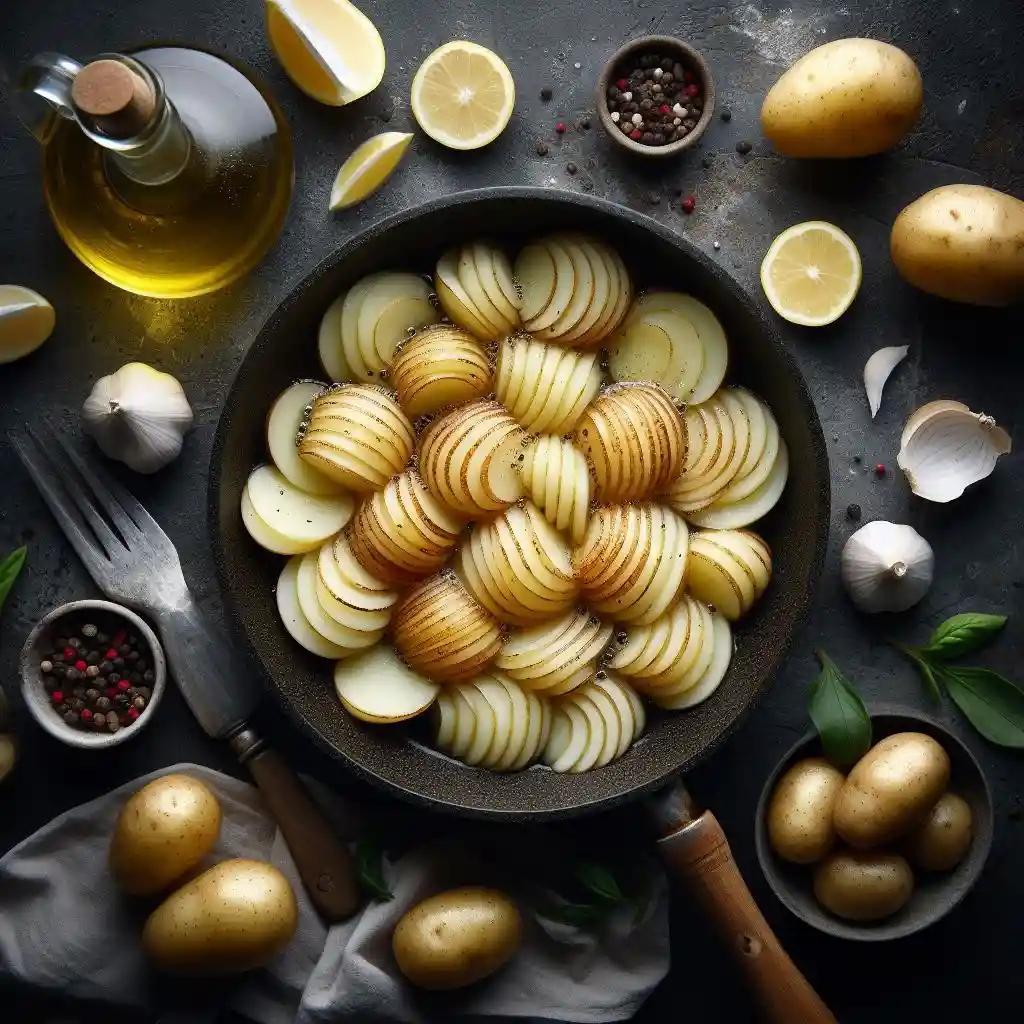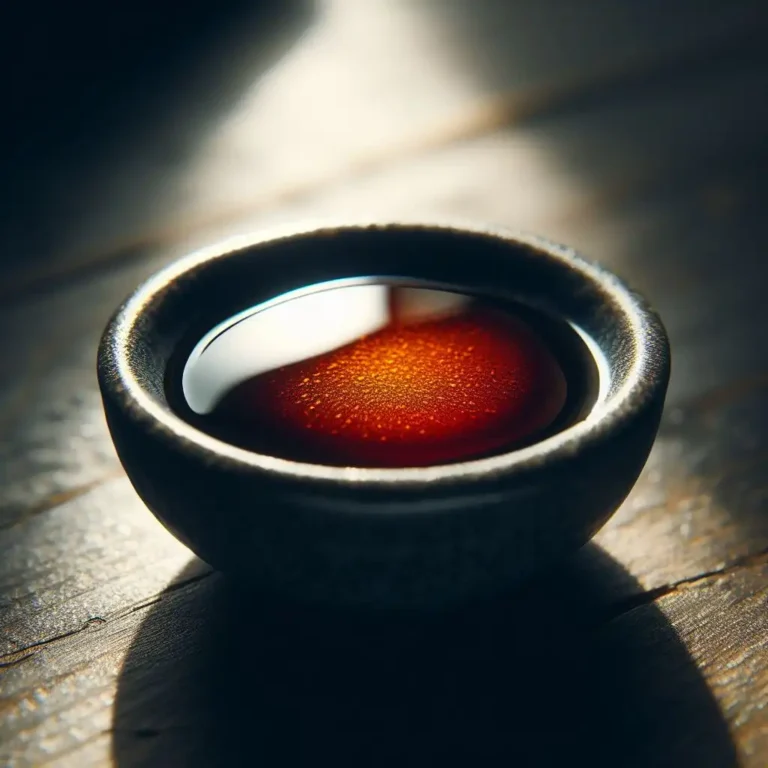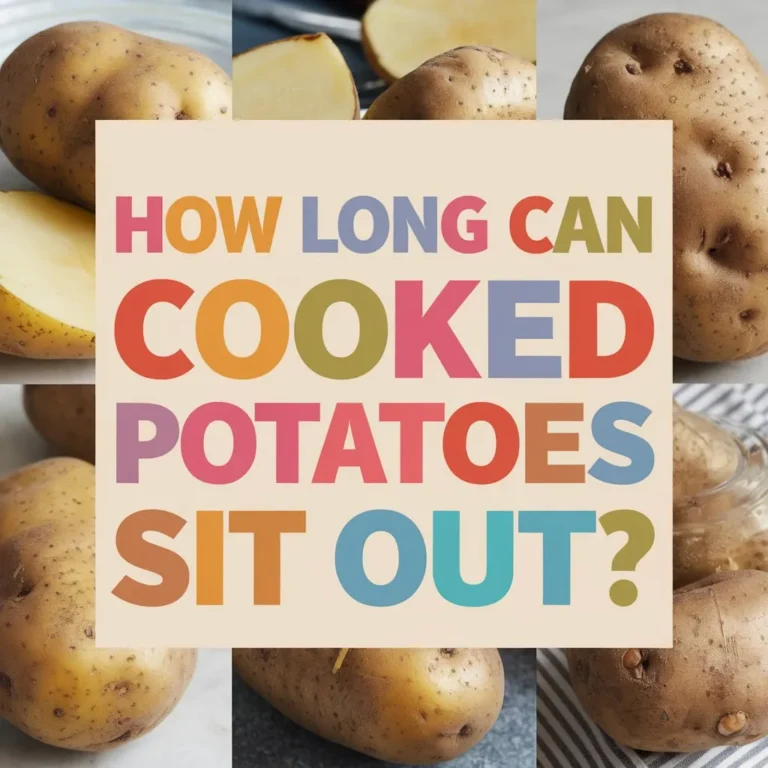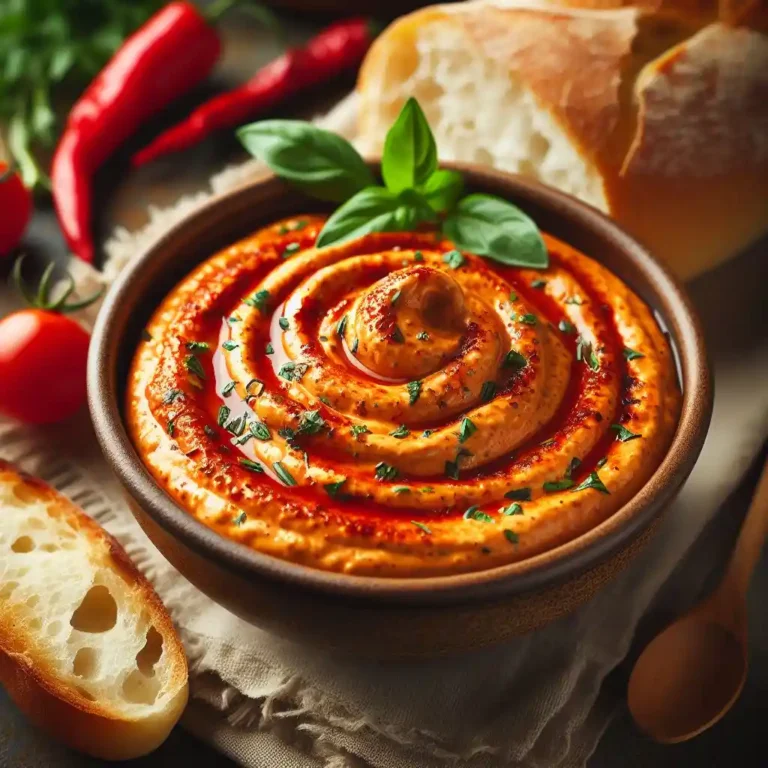Why Potatoes Turn Black After Cooking? Causes & Solutions
Have you ever cooked a delicious potato dish, only to be surprised by an unexpected twist: your potatoes turn black after cooking? It’s a phenomenon that has left many cooks puzzled and concerned. But fear not, for we’re about to unravel the mystery behind this curious occurrence.
In this article, we’ll delve into the possible causes of blackened potatoes and provide you with practical solutions to prevent this unwanted color change.
Potatoes Turn Black After Cooking – Quick Solutions

Why Potatoes Turn Black After Cooking:
- Enzymatic Reaction: Potatoes contain an enzyme called polyphenol oxidase (PPO) that reacts with oxygen to form melanin, a brown or black pigment.
- Oxidation: When potatoes are cut or cooked, their cells are damaged, releasing enzymes and allowing oxygen to react with the starches and sugars, causing the potato to turn black.
- Phytochemicals: Potatoes contain phytochemicals like chlorogenic acid, which can react with oxygen to form melanin, leading to the black color.
Tips to Prevent Potatoes from Turning Black:
- Use cold water: Cook potatoes in cold water to minimize damage to the cells and reduce the release of enzymes.
- Avoid cutting or piercing: Minimize cutting or piercing potatoes to reduce the release of enzymes and oxygen.
- Cook quickly: Cook potatoes quickly to reduce the time available for enzymatic reactions to occur.
- Add acidity: Add a splash of lemon juice or vinegar to the cooking water to reduce the pH and inhibit enzymatic reactions.
- Use antioxidants: Add antioxidants like vitamin C or E to the cooking water to reduce the formation of melanin.
- Store properly: Store cooked potatoes in an airtight container to prevent oxidation and reduce the risk of blackening.
The Science Behind Blackened Potatoes: Understanding the Causes

When potatoes turn black after cooking, it’s not just a cosmetic issue – it’s a complex biological process involving enzymes, oxygen, and phytochemicals. Let’s dive into the science behind this phenomenon.
Enzymatic Reaction: The Role of Polyphenol Oxidase (PPO)
Potatoes contain an enzyme called polyphenol oxidase (PPO), which is responsible for the browning reaction. PPO is a copper-containing enzyme that catalyzes the oxidation of phenolic compounds, leading to the formation of melanin, a brown or black pigment.
Oxidation: The Role of Oxygen
When potatoes are cut or cooked, their cells are damaged, releasing enzymes and allowing oxygen to react with the starches and sugars. This reaction leads to the formation of melanin, causing the potato to turn black.
Phytochemicals: The Hidden Factor
Potatoes also contain phytochemicals like chlorogenic acid, which can react with oxygen to form melanin, leading to the black color. These phytochemicals are naturally present in the potato and can contribute to the blackening process.
The Perfect Storm: How Enzymes, Oxygen, and Phytochemicals Combine
When potatoes are cooked, the combination of enzymatic reactions, oxidation, and phytochemicals creates the perfect storm that leads to blackening. The damage to the potato cells allows enzymes to be released, which react with oxygen to form melanin, resulting in the black color.
Why Potatoes Turn Black After Cooking: The Enzymatic Reaction
When potatoes are cooked, they undergo a series of chemical reactions that can lead to the formation of melanin, a brown or black pigment. One of the key factors behind this process is the enzymatic reaction.
The Role of Polyphenol Oxidase (PPO)
Potatoes contain an enzyme called polyphenol oxidase (PPO), which is responsible for the browning reaction. PPO is a copper-containing enzyme that catalyzes the oxidation of phenolic compounds, leading to the formation of melanin.
The Enzymatic Reaction
When potatoes are cut or cooked, their cells are damaged, releasing PPO and allowing it to react with oxygen. This reaction leads to the formation of melanin, causing the potato to turn black.
The Reaction Mechanism
The enzymatic reaction involves the following steps:
- Release of PPO: When potatoes are cut or cooked, their cells are damaged, releasing PPO into the surrounding medium.
- Oxidation of Phenolic Compounds: PPO reacts with oxygen to form a quinone, which is a precursor to melanin.
- Formation of Melanin: The quinone reacts with other compounds to form melanin, a brown or black pigment.
Factors Affecting the Enzymatic Reaction
Several factors can influence the enzymatic reaction and the resulting blackening of potatoes, including:
- Temperature: Higher temperatures can increase the rate of the enzymatic reaction.
- pH: Changes in pH can affect the activity of PPO and the rate of the reaction.
- Oxygen Availability: The availability of oxygen can influence the rate of the reaction.
Oxidation: The Other Culprit Behind Blackened Potatoes
While the enzymatic reaction is a key factor in the blackening of potatoes, oxidation plays a significant role as well. Oxidation is a chemical reaction that involves the loss of one or more electrons by an atom, molecule, or ion. In the case of potatoes, oxidation can lead to the formation of melanin, a brown or black pigment.
The Role of Oxygen
Oxygen is a key player in the oxidation reaction. When potatoes are cut or cooked, their cells are damaged, releasing enzymes and allowing oxygen to react with the starches and sugars. This reaction leads to the formation of melanin, causing the potato to turn black.
The Oxidation Reaction
The oxidation reaction involves the following steps:
- Oxidation of Starches and Sugars: The starches and sugars in the potato react with oxygen to form aldehydes and ketones.
- Formation of Melanin: The aldehydes and ketones react with each other to form melanin, a brown or black pigment.
Factors Affecting Oxidation
Several factors can influence the oxidation reaction and the resulting blackening of potatoes, including:
- Oxygen Availability: The availability of oxygen can influence the rate of the oxidation reaction.
- Temperature: Higher temperatures can increase the rate of the oxidation reaction.
- pH: Changes in pH can affect the activity of enzymes involved in the oxidation reaction.
Combining Enzymatic Reaction and Oxidation
The enzymatic reaction and oxidation are not mutually exclusive. In fact, they can work together to accelerate the blackening process. When potatoes are cut or cooked, the enzymatic reaction releases enzymes that react with oxygen to form melanin. The oxidation reaction can also contribute to the formation of melanin, leading to the blackening of the potato.
Phytochemicals: The Hidden Factor in Blackened Potatoes
While enzymes and oxidation play a significant role in the blackening of potatoes, phytochemicals are another important factor to consider. Phytochemicals are naturally occurring compounds found in plants, including potatoes. They can contribute to the blackening process by reacting with oxygen to form melanin.
Types of Phytochemicals
Potatoes contain a variety of phytochemicals, including:
- Chlorogenic acid: A phenolic acid that can react with oxygen to form melanin.
- Catechins: A type of flavonoid that can contribute to the blackening process.
- Anthocyanins: A type of flavonoid that can react with oxygen to form melanin.
The Role of Phytochemicals
Phytochemicals can contribute to the blackening of potatoes in several ways:
- Reaction with Oxygen: Phytochemicals can react with oxygen to form melanin, leading to the blackening of the potato.
- Enzyme Inhibition: Phytochemicals can inhibit the activity of enzymes involved in the enzymatic reaction, leading to a slower rate of blackening.
- Antioxidant Activity: Phytochemicals can act as antioxidants, reducing the formation of melanin and the blackening of the potato.
Factors Affecting Phytochemicals
Several factors can influence the role of phytochemicals in the blackening of potatoes, including:
- Variety: Different potato varieties can contain different types and amounts of phytochemicals.
- Growing Conditions: Environmental factors such as temperature, light, and water can affect the production of phytochemicals.
- Cooking Methods: Cooking methods can influence the activity of phytochemicals and the resulting blackening of the potato.
Combining Factors
The enzymatic reaction, oxidation, and phytochemicals can interact with each other to influence the blackening of potatoes. Understanding the role of each factor can help cooks and food scientists develop strategies to minimize the blackening of potatoes.
Preventing Blackened Potatoes: Tips for Cooking Success

While understanding the science behind blackened potatoes is important, it’s equally important to know how to prevent it. Here are some tips for cooking success:
Tip 1: Choose the Right Potatoes
- Variety: Choose potato varieties that are less prone to blackening, such as Russet or Idaho potatoes.
- Freshness: Use fresh potatoes to minimize the risk of blackening.
Tip 2: Cook Potatoes Properly
- Temperature: Cook potatoes at a moderate temperature to prevent excessive browning.
- Time: Cook potatoes for the recommended time to prevent overcooking.
- Method: Choose a cooking method that minimizes damage to the potato cells, such as boiling or steaming.
Tip 3: Minimize Oxidation
- Acidity: Add a splash of acidity, such as lemon juice or vinegar, to the cooking water to reduce oxidation.
- Antioxidants: Add antioxidants, such as vitamin C or E, to the cooking water to reduce oxidation.
Tip 4: Store Potatoes Properly
- Cooling: Cool cooked potatoes quickly to prevent the growth of bacteria and the formation of melanin.
- Storage: Store cooked potatoes in an airtight container to prevent oxidation.
Tip 5: Monitor Cooking Conditions
- Temperature: Monitor cooking temperatures to prevent excessive browning.
- Time: Monitor cooking times to prevent overcooking.
- pH: Monitor pH levels to prevent excessive browning.
Cooking Techniques to Minimize Blackening: A Guide
When it comes to cooking potatoes, there are several techniques you can use to minimize blackening. Here are some tips and guidelines to help you achieve perfectly cooked, delicious potatoes:
Boiling
- Use a large pot: Use a large pot to prevent the potatoes from becoming overcrowded and to allow for even cooking.
- Use cold water: Use cold water to prevent the potatoes from cooking too quickly and becoming blackened.
- Add acidity: Add a splash of acidity, such as lemon juice or vinegar, to the water to reduce oxidation.
Steaming
- Use a steamer basket: Use a steamer basket to prevent the potatoes from coming into contact with the boiling water and to allow for even cooking.
- Use a moderate heat: Use a moderate heat to prevent the potatoes from cooking too quickly and becoming blackened.
- Add aromatics: Add aromatics, such as garlic or herbs, to the steaming water to enhance the flavor of the potatoes.
Roasting
- Preheat the oven: Preheat the oven to a moderate temperature to prevent the potatoes from cooking too quickly and becoming blackened.
- Use a moderate heat: Use a moderate heat to prevent the potatoes from cooking too quickly and becoming blackened.
- Add aromatics: Add aromatics, such as garlic or herbs, to the potatoes to enhance the flavor.
Grilling
- Preheat the grill: Preheat the grill to a moderate heat to prevent the potatoes from cooking too quickly and becoming blackened.
- Use a moderate heat: Use a moderate heat to prevent the potatoes from cooking too quickly and becoming blackened.
- Add aromatics: Add aromatics, such as garlic or herbs, to the potatoes to enhance the flavor.
Adding a Twist: How Acidity and Antioxidants Can Help
When it comes to preventing blackening in potatoes, acidity and antioxidants can be your best friends. Here’s how they can help:
Acidity: The pH Factor
- Lowering pH: Adding an acidic ingredient, such as lemon juice or vinegar, to the cooking water can help lower the pH of the potatoes and reduce the risk of blackening.
- Inhibiting Enzymes: Acidity can also inhibit the activity of enzymes that contribute to blackening, such as polyphenol oxidase (PPO).
Antioxidants: The Free Radical Fighters
- Neutralizing Free Radicals: Antioxidants, such as vitamin C or E, can neutralize free radicals that contribute to the formation of melanin and blackening.
- Reducing Oxidation: Antioxidants can also reduce oxidation reactions that lead to blackening.
Practical Applications
- Add a Squeeze of Lemon: Add a squeeze of lemon juice to the cooking water to reduce the pH and inhibit enzyme activity.
- Use Antioxidant-Rich Ingredients: Add antioxidant-rich ingredients, such as berries or herbs, to the cooking water to neutralize free radicals and reduce oxidation.
- Try a Marinade: Marinate potatoes in an acidic mixture, such as a vinaigrette, to reduce the risk of blackening.
Storing and Serving: The Final Steps to Avoid Blackened Potatoes
You’ve cooked your potatoes to perfection, but the journey doesn’t end there. Proper storage and serving techniques can make all the difference in maintaining the quality and appearance of your potatoes. Here are some final tips to help you avoid blackened potatoes:
Storing Cooked Potatoes
- Cooling: Cool cooked potatoes quickly to prevent the growth of bacteria and the formation of melanin.
- Airtight Containers: Store cooked potatoes in airtight containers to prevent oxidation and moisture from entering the container.
- Refrigeration: Refrigerate cooked potatoes at a temperature of 40°F (4°C) or below to slow down the oxidation process.
Serving and Presentation
- Minimize Exposure: Minimize exposure to oxygen by serving potatoes immediately after cooking or storing them in an airtight container.
- Use Acidic Ingredients: Add a splash of acidity, such as lemon juice or vinegar, to the potatoes before serving to reduce the risk of blackening.
- Garnish with Antioxidants: Garnish potatoes with antioxidant-rich ingredients, such as herbs or berries, to add flavor and reduce oxidation.
Additional Tips
- Use the Right Potatoes: Choose potato varieties that are less prone to blackening, such as Russet or Idaho potatoes.
- Monitor Storage Conditions: Monitor storage conditions, such as temperature and humidity, to prevent the growth of bacteria and the formation of melanin.
FAQs
Q: Why do potatoes turn black after cooking?
A: Potatoes turn black after cooking due to a combination of factors, including enzymatic reactions, oxidation, and the presence of phytochemicals.
Q: How can I prevent potatoes from turning black?
A: To prevent potatoes from turning black, use cold water, add acidity, and minimize oxidation. You can also use antioxidants and acidic ingredients to reduce the risk of blackening.
Q: What are the best potato varieties to use to prevent blackening?
A: Choose potato varieties that are less prone to blackening, such as Russet or Idaho potatoes.
Q: Can I use lemon juice or vinegar to prevent blackening?
A: Yes, adding a splash of lemon juice or vinegar to the cooking water can help reduce the risk of blackening by lowering the pH and inhibiting enzyme activity.
Q: How do I store cooked potatoes to prevent blackening?
A: Store cooked potatoes in airtight containers, refrigerate them at a temperature of 40°F (4°C) or below, and consume them within a few days.
Q: Can I add antioxidants to my potato dishes to prevent blackening?
A: Yes, adding antioxidant-rich ingredients, such as berries or herbs, to your potato dishes can help reduce the risk of blackening.
Q: How can I minimize oxidation when cooking potatoes?
A: Minimize oxidation by using cold water, cooking potatoes at a moderate temperature, and adding acidity or antioxidants to the cooking water.

DK Jacks is a passionate food enthusiast, recipe developer, and culinary explorer. With a love for both traditional and innovative flavors, DK brings a fresh perspective to the kitchen. When not experimenting with new ingredients, you’ll find DK capturing food moments through the lens or sharing cooking tips with fellow foodies.🍽️📸✨






